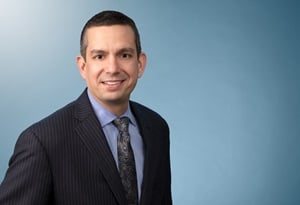Supreme Court to Consider Pharmaceutical Sales Representative FLSA Case
On November 28, 2011, the U.S. Supreme Court agreed to review the decision in Christopher v. SmithKline Beecham Corp. In its grant of certiorari, the Supreme Court agreed to consider two issues: (1) whether deference is owed to the U.S. Secretary of Labor's interpretation of the outside sales exemption under the Fair Labor Standards Act (FLSA) and related regulations; and (2) whether the FLSA's outside sales exemption applies to pharmaceutical sales representatives. The Supreme Court's decision to consider these issues is not surprising, as recent Court of Appeals rulings have created a split among federal circuit courts.
In July 2010, the Second Circuit held that pharmaceutical sales representatives are not exempt under either the outsides sales or administrative exemptions in In re Novartis Wage & Hour Litigation. When deciding Novartis, the Second Circuit afforded deference to the Department of Labor's interpretation of the outside sales exemption and found that pharmaceutical sales representatives do not "make sales" as required by the exemption. The Second Circuit also found that the Novartis sales representatives were not exempt under the FLSA as administrative employees. On February 28, 2011, the Supreme Court denied Novartis's request for further review, leaving the decision of the Second Circuit in place.
On February 14, 2011, the Ninth Circuit held in the Christopher case that GlaxoSmithKline's pharmaceutical sales representatives are exempt as outside sales employees and refused to defer to the Department of Labor's interpretation of the FLSA's outside sales exemption. The law of the Second and Ninth Circuits is thus squarely at odds, making this issue ripe for Supreme Court determination, especially considering that a number of similar cases have been filed recently and are percolating through other federal courts.
The Supreme Court's ruling has the possibility of providing significant guidance regarding the scope and interpretation of the outside sales exemption, as well as determining the level of deference owed to the Department of Labor in general – and perhaps other federal agencies – going forward. Although the Supreme Court did not agree to address the application of the administrative exemption to pharmaceutical sales representatives (because it was not a part of the lower court's decision in the Christopher case), this case is nonetheless an important wage/hour case that may impact employers of sales and sales-related employees in several industries.
For earlier discussions of the Novartis and Christopher cases, and other cases addressing the exempt status of pharmaceutical sales representatives, please see the February 2011 and April 2011 articles in this series.The material contained in this communication is informational, general in nature and does not constitute legal advice. The material contained in this communication should not be relied upon or used without consulting a lawyer to consider your specific circumstances. This communication was published on the date specified and may not include any changes in the topics, laws, rules or regulations covered. Receipt of this communication does not establish an attorney-client relationship. In some jurisdictions, this communication may be considered attorney advertising.


